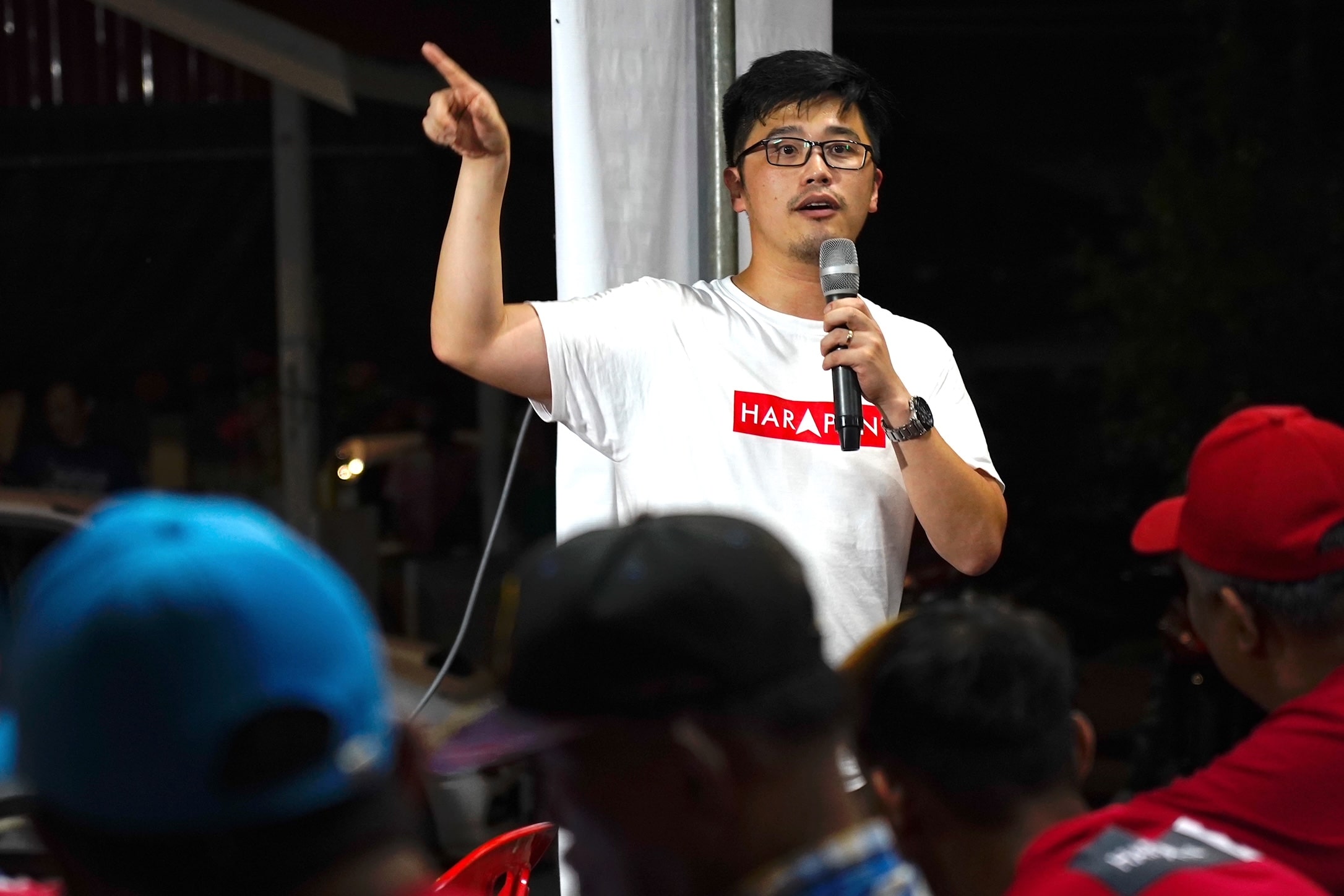IPOH, Nov 16 – A Pakatan Harapan (PH) government will gradually phase the contract system for medical officers away to secure tenure, Ipoh Timor hopeful Howard Lee Chuan How said.
The PH candidate for the parliamentary seat in Perak in the 15th general election pointed out that government doctors are still stuck with “contract for service”, rather than “contract of service”.
“Do we not respect our frontliners? The problems with these contracts are not new,” Lee said in his typical Perakian Malay dialect at a small ceramah in Tebing Tinggi here last night.
“After the 19th, when Pakatan Harapan is elected as government, in our manifesto and among the pledges that we previously announced, one of it is that we will immediately resolve issues of contract doctors and the welfare of administrators and health care workers in Malaysia, so that the people will not suffer when they go to Klinik Kesihatan, where you currently have to wait, and wait, and wait.
“It’s so slow. You have to wait to get a queue number, line up, and when there’s no queue number, you have to wait some more.”
When approached for further comments after the ceramah, Lee told CodeBlue that the current “contract for service” system lacks job security for doctors in the public sector due to annual, or sometimes just three or six months’, renewal of contracts after two-year compulsory service.
“Therefore, it’s a transition from that contract for service to contract of service. Contract of service is tenure-ship, where if you’re qualified to do that job — until and unless you make a mistake, or you have disciplinary issues, or you have problems, or you choose to exit that arrangement — you have a job that does not require annual renewal of your contract,” Lee said.
He clarified that PH was not envisioning a complete abolition of the controversial contract system for government doctors, but a “gradual phase” towards appointing more medical officers on tenure and fewer on contract for service.
“There’s a strategic position to transition from a lesser contract system, more towards a permanent role system, which is basically from contract from service to contract of service, by and large.”
The Malaysian Medics International (MMI), a medical students-led group, previously criticised the contract system with five-year contracts (three-year contract with two-year extension), noting that the current specialisation pathway requires doctors to complete at least three years of service with good performance, and subsequently at least four years to complete specialty training.
When CodeBlue pointed out that the-then Barisan Nasional (BN) government had introduced the contract system back in 2016 due to lack of funding to absorb all incoming doctors into permanent posts, Lee replied: “They failed to find funding.”
“There’s a distinct difference with there not being enough funding, with them failing to find and allocate the funding. It’s a prioritisation issue; they didn’t prioritise the right things in the right places. They failed.”
Outgoing Health Minister Khairy Jamaluddin, who is now contesting the PH stronghold of Sungai Buloh in Selangor for BN, previously said last September that the days of permanent posts for all government doctors are over, telling medical officers not to hold out hope for the abolition of the contract system.
“That’s his position,” Lee said in response. “He may not even win his election, so that’s his position when he was health minister.”
When CodeBlue pointed out that former Health Minister Dzulkefly Ahmad, under the then-PH government, had similarly said – just like his predecessor under BN and successors under Perikatan Nasional (PN) and Ismail Sabri Yaakob’s administration – that medical officers may not get permanent positions, Lee countered: “That was a different government under a different prime minister.”
The 22-month PH administration from May 2018 to February 2020 was headed by Prime Minister Dr Mahathir Mohamad. PH’s prime minister designate in GE15 is PKR president Anwar Ibrahim.

“Is it the same manifesto? The same wording and the same commitment?” added Lee, who is also a DAP central executive committee member.
“Back then, we didn’t even touch on 5 per cent of GDP [for public health care expenditure]; we didn’t consider the kind of quantum we want to put into health care. We are now because there’s a different set of priorities. It’s a different norm altogether.”
Lee, who was part of the drafting committee for PH’s “Tawaran Harapan” election manifesto, stressed that PH is also focused on improving the welfare of health care workers and health care administrators in the public sector, beyond reforming the contract system for doctors.
“We’re going all out and talking about the entire health system. We speak about decent work, decent pay, and decent livelihoods. That should involve our doctors, nurses, and health care administrators, people working in hospitals, people working in offices in hospitals, people working in labs.”
When asked how a PH government would fund additional tenured medical officers, Lee said: “Let’s leave it for ministers and ministries to figure it out.
“We will give full trust to the strategic position taken by Pakatan Harapan’s Tawaran and allow room for the new minister and his or her deputy and technocratic, bureaucratic, administerial staff, as well as the entire health care machinery to do what is necessary in line with the strategy and commitments made in Tawaran Pakatan Harapan.”








